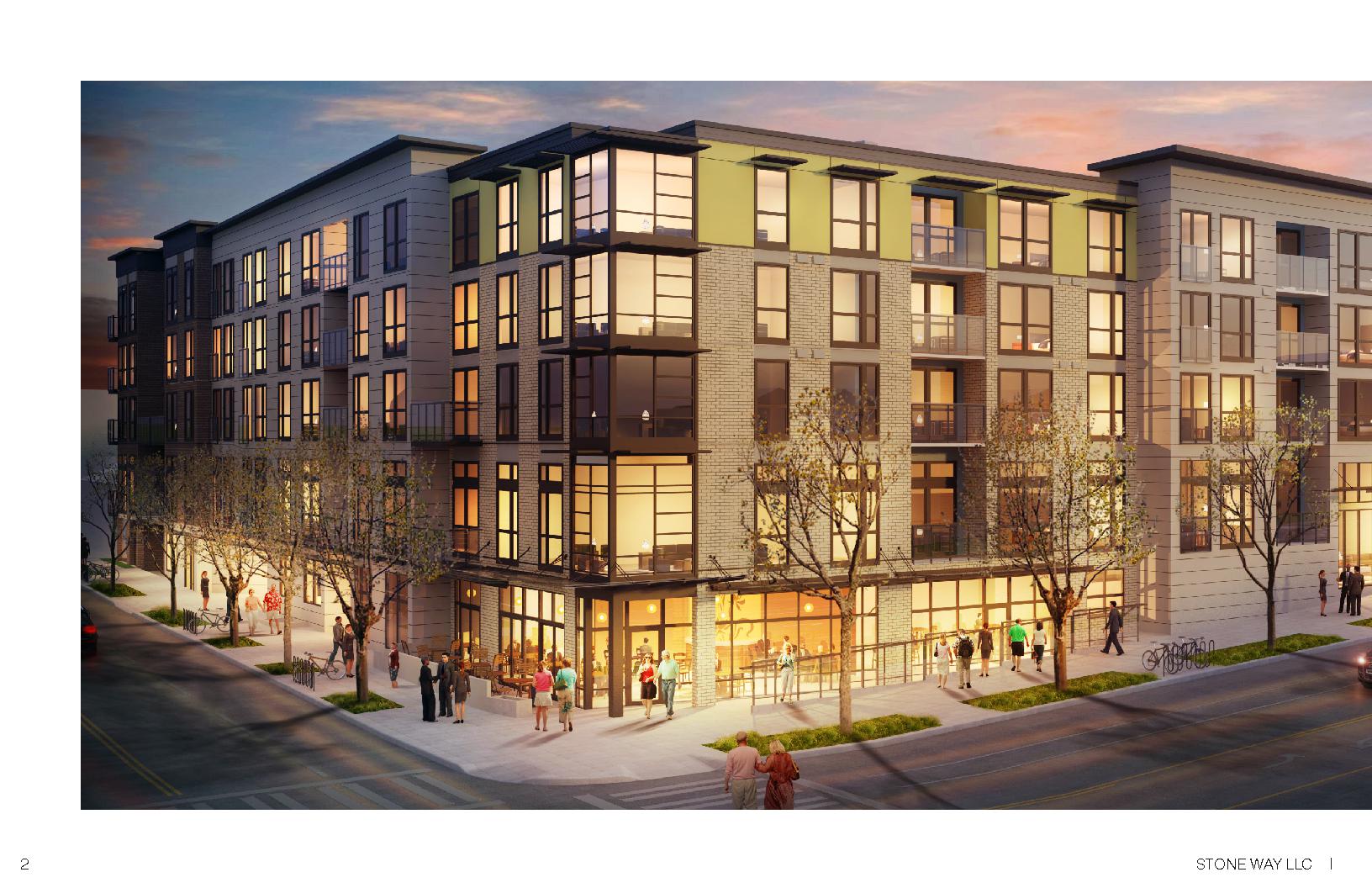It’s easiest to document the changes taking place outside your own window, which for me looks out on Woodland Park Avenue and Stone Way. From my vantage alone, I can see two large construction sites. Frelingford is undergoing a transformation.
What is Frelingford?
What is Frelingford, you ask? Well that’s the name some people (perhaps my wife most of all) use to refer to our neighborhood: the nether region between Fremont and Wallingford. Officially, our apartment on Woodland Park Avenue is in Fremont, but, since Stone Way divides the two booming neighborhoods, Wallingford is just a block away. It feels like we have a foot planted in each neighborhood. I’d contend the area between SR-99 and Interlake Avenue is Frelingford; plus, I’d even claim Wallingford’s southern peninsula below 35th Street, an area more than ten blocks from Wallingford’s main business district on 45th Street.
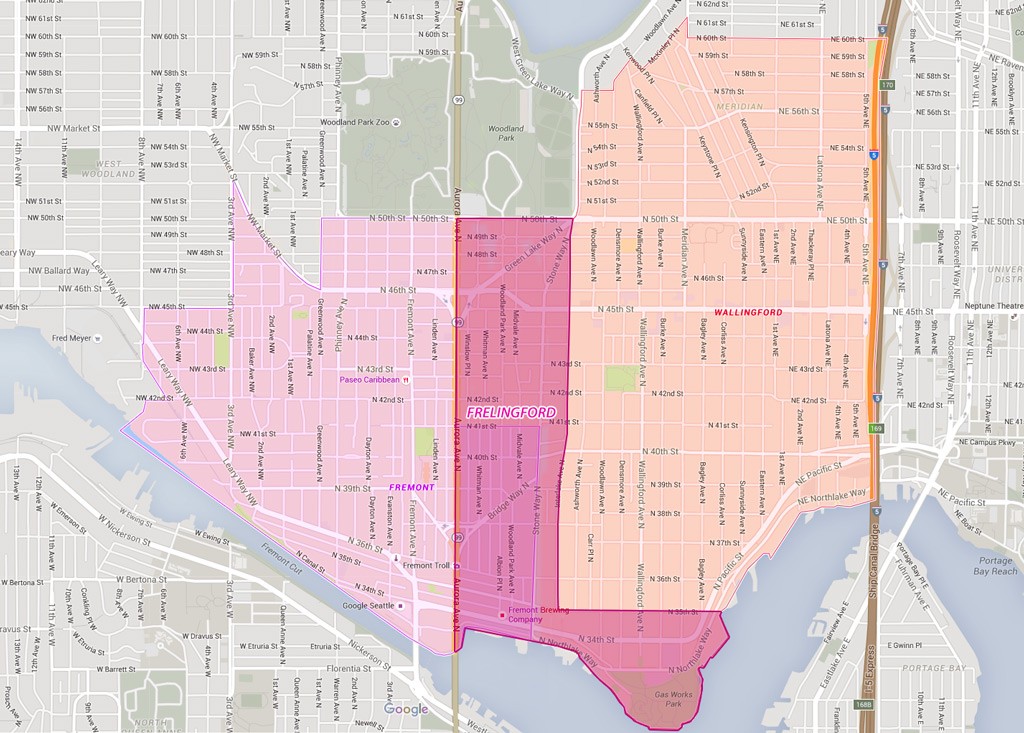
Within a block or so of Stone Way also happens to be where much of the latest round of growth in both neighborhoods is taking place, particularly the largest mixed use projects. Perhaps, the Stone Way district will even begin to rivals Wallingford’s 45th Street commercial district and Fremont’s busy 36th Street business strip. Many projects do include first floor commercial space to lend new additions to an existing mix of restaurants, coffee shops, and retail.
Kitty corner from me, a full block mixed-use building has sprouted at 3801 Stone Way that comes with 278 apartments and 8,215 feet of commercial space.
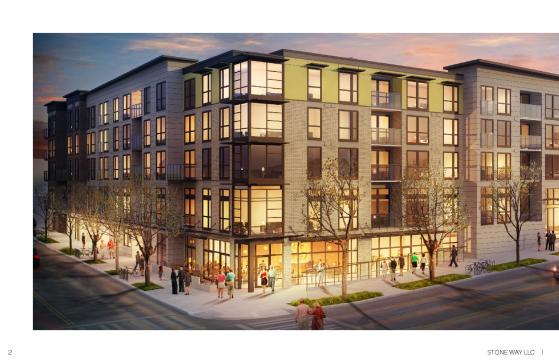
Two blocks south at 3627 Stone Way, a tower crane just went up for another large apartment building containing 124 units.
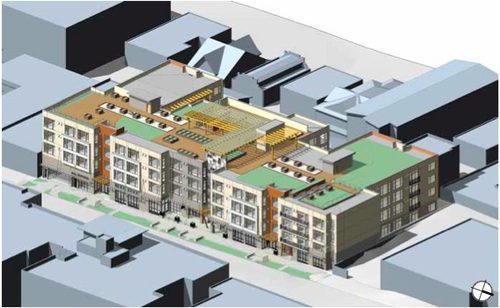
Additionally, a potentially iconic triangular 23-unit apartment building is in the works two blocks north of us at 3860 Bridge Way.
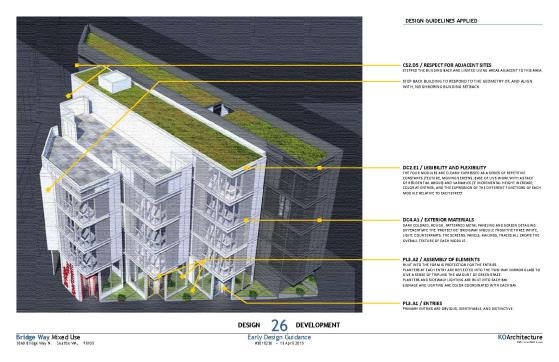
Our building, Velo Apartments, is a relative newcomer, too, going on the market Fall 2014 with 171 units. Velo was built by Mack Urban, who also completed Ray, a building at 3636 Stone Way with 137 units in 2015. Next month, Mack Urban will start renting Smith & Burns, a 150 unit building at 1321 45th Street, just off of Stone Way.
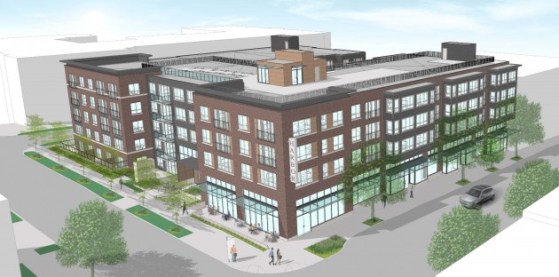
On another triangular plot at 1240 N Midvale Place, a building with 30 apartments and 2,338 square feet of office space is under construction.
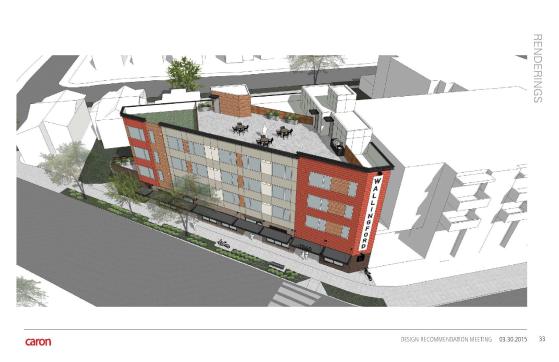
Lagging Growth Elsewhere
Meanwhile, growth in the central area of Fremont seems tepid in comparison. One six-story mixed-use building with 48 units is replacing a smaller existing apartment building at 3519 Fremont Place N. A few townhomes are going in here and there. Plus, a five-story office building is replacing the current site of Milstead Coffee and Cafe Turko (don’t worry, both are staying open at a location just up the street), and just north a five-story mixed-use building with 56 apartments and 1,881 square feet of retail is going in at 743 N 34th Street.
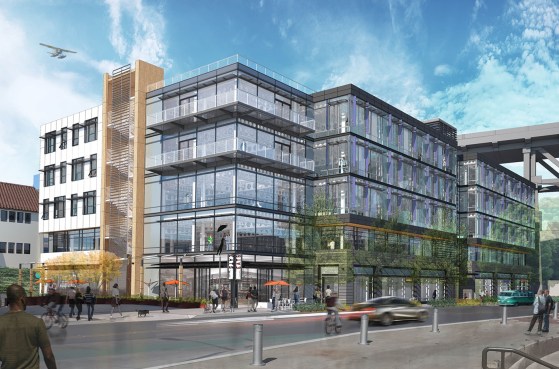
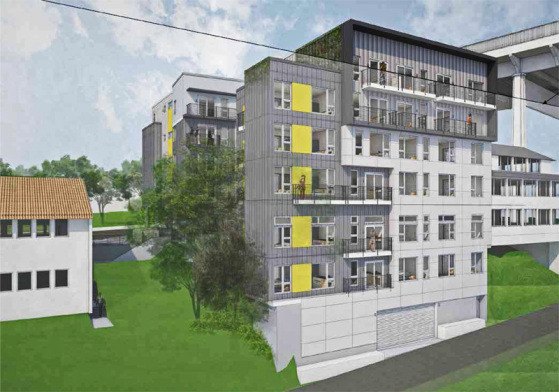
Wallingford is seeing a few more new projects, but the largest are within a few blocks of Stone Way or at the far south edge near Gas Works Park, where two apartment buildings and the NorthEdge office building are under construction.
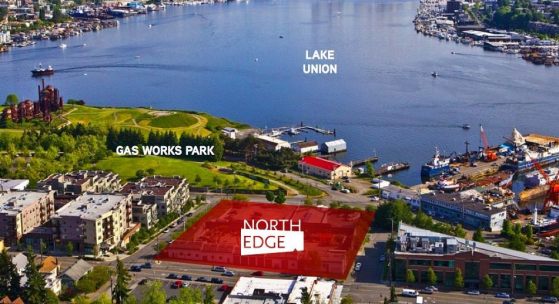
Data visualization software company Tableau leased out an entire NorthEdge office building with space for 1,300 employees. The expectation of several hundred new tech hires moving to the area is a big reason Fremont and Wallingford are seeing such a dramatic boom.
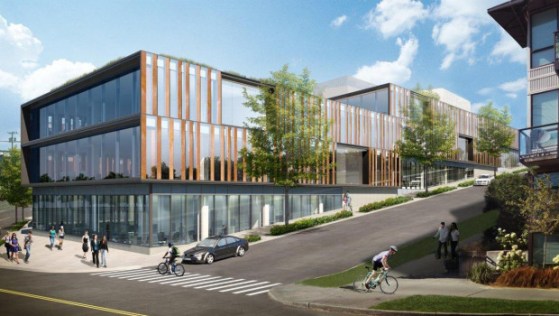
Two apartment buildings are going up two blocks east of the new Tableau office building. Designed by AMLI Residential Partners, the twin five-story structures will house 239 units.
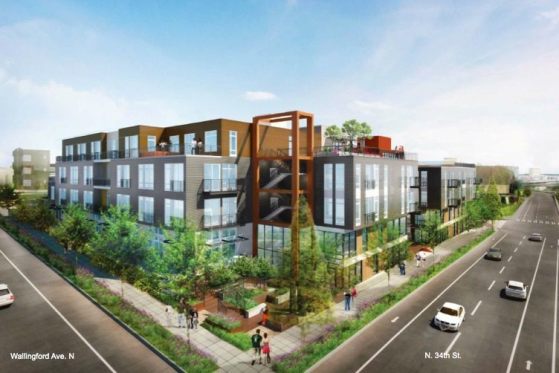
Meanwhile in old Wallingford, national pharmacy chain CVS bought a cherished neighborhood building at the corner of N 45th St and Meridian Ave N, known best for an iconic neighborhood mural and Moon Temple (and a Tully’s Coffee). In a display of urban design ineptitude, CVS refused to put up a mixed-use building, opting instead to renovate the existing one-story building to circumvent authority of the Northwest Design Review Board.

CVS also planned to add one-story suburban-style stores in West Seattle and Lower Queen Anne but encountered a large backlash from neighborhood activists. Thanks to this pressure, the City Council passed a minimum floor area ratio measure (a density requirement) that helped force CVS to add two additional stories to its Lower Queen Anne location. The Wallingford location is proceeding as a renovation of the existing one-story building — to me the worst compromise and a skin-deep concession to historical preservation. Either leave the two small storefronts in the old building, or, if you’re going to displace them, put up something more visionary and worthy of a prime piece of land.
At N 45th St and Woodlawn Ave N, a 48-unit apartment building is going in with 3600 square feet of retail. Fellow writer of The Urbanist, Stephen Fesler gave the design a glowing review. I’d concur; it’s a handsome brick building. At just three blocks east of Stone Way, this building very nearly falls in Frelingford.
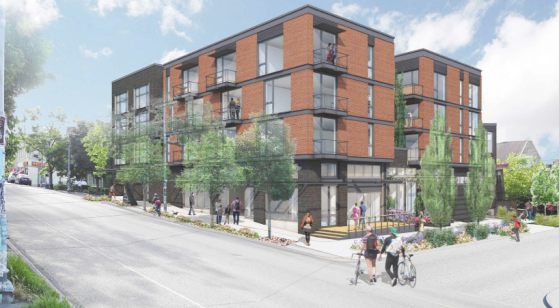
Rounding out the big projects in Wallingford, a four-story Bedrooms & More retail and office space complex is under construction at the neighborhood’s eastern edge at 324 NE 45th Street.
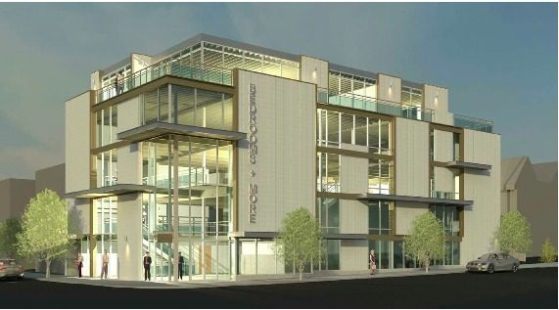
Why the lag?
While at least 1,500 new apartments have been built in the area that I’ve defined as Frelingford since 2012, comparatively few have gone in the central districts of Fremont and Wallingford during that time span. Why is Frelingford seeing more intensified growth than the even more bustling and high demand hearts of these neighborhoods? The answer, I think, has a lot to do with zoning. The zoning of decades past is reinforced by a perceived desire to keep much of the one- to two-story retail that predominates in both business districts and the two story mostly single family residential that dominates just a block or two off the business strip. That’s not to say zoning is the only explanation. I expect parcels along Stone Way may have been easier and cheaper to acquire for mixed-use development given that they previously formed an industrial warehouse area.
| Building Name/Address | Number of Units | Year Opened/Expected | Number of Stories |
|---|---|---|---|
| Prescott 3920 Stone Way N | 154 | 2012 | 6 |
| The Noble 4301 Stone Way N | 93 | 2013 | 4 |
| Collage Fremont 3606 Woodland Park Ave N | 52 | 2013 | 4 |
| Positano Apodments 3642 Woodland Park Ave N | 66 | Aug 2014 | 4 |
| Velo Apartments 3635 Woodland Park Ave N | 171 | Fall 2014 | 5 |
| Ray 3636 Stone Way | 137 | Spring 2015 | 4 |
| 3801 Stone Way | 278 | 2016 | 5 |
| Smith & Burns 1321 N 45th St | 150 | Jan 2016 | 5 |
| 3627 Stone Way N | 124 | In construction | 4 |
| 3860 Bridge Way N | 23 | Planned | 4 |
| 1240 Midvale Place | 30 | In construction | 4 |
| 3400 Wallingford Ave N | 146 | In construction | 5 |
| 3326 Wallingford Ave N | 93 | In construction | 5 |
| TOTAL | 1,517 |
Getting Zoning To Match Urban Village Aspirations
Both Wallingford and Fremont were deemed urban villages in the 1994 Comprehensive plan, but to a large extent zoning changes envisioned did not materialize. The 2035 Plan — which should finally be passed next year — suggests easing zoning and development restrictions within the boundaries of the Wallingford Residential Urban Village. As you can see below, about half of the “urban” village is still zoned for single-family residential development, not urban residential or mixed-use development.
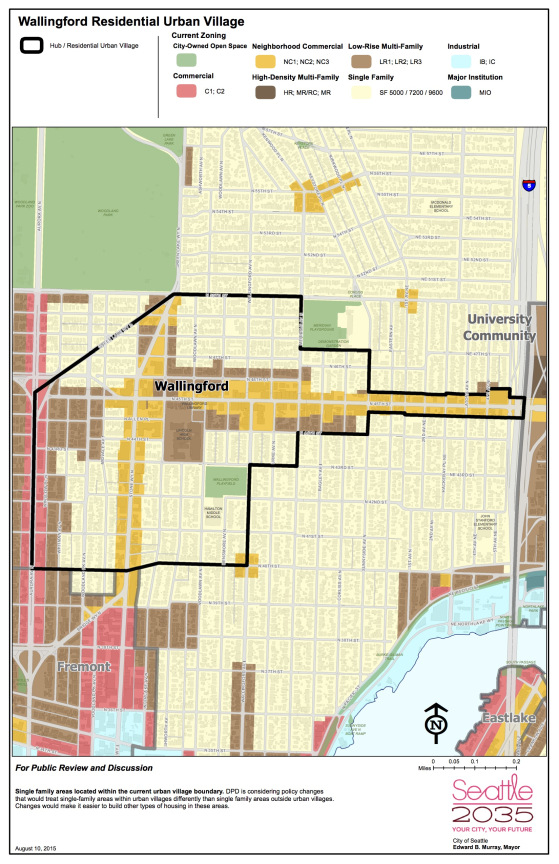
Notice how the Wallingford urban village is weighted heavily to the western side, and much is within the Frelingford area that I’ve described. East of Sunnyside Ave N, the urban village boundaries are pencil thin, not even a full block. The Urbanist Editorial Board has recommended expanding the boundaries of high demand urban villages and mentioned Wallingford specifically:
The city needs to go further and expand the areas of urban development in urban villages and high-intensity zoning in urban centers, especially where there is extraordinary demand for housing (e.g. Ballard, Wallingford, South Lake Union, and the University District).
I like the idea of stretching the urban village’s boundaries from 43rd Street to 51st Street throughout Wallingford. That doesn’t mean all the single-family homes within that boundary would be redeveloped, but it would spread the growth and hopefully allow building diversity in age and type. Moreover, portions of 40th Street and Wallingford Avenue are ripe for redevelopment. 40th Street has many grandfathered uses that mirror low-rise residential and neighborhood-scaled commercial lining the corridor from Stone Way to I-5. As an added benefit, the street has frequent bus service from Routes 26, 31, and 32. Wallingford Avenue already has some some commercial use that could be built upon with relaxed zoning along its spine and near Gas Works Park.
The Seattle 2035 plan flirts with expanding the Fremont Hub Urban Village 1994 boundaries by a few blocks. Currently, 40th Street delineates the northernmost extent, but much of Upper Fremont is already zoned Low-Rise Multi-Family meaning growth could climb up the Fremont Avenue corridor, and to some extent already has. The Urbanist has recommended making Upper Fremont an urban village in its own right. Notice again, the urban village already stretches to Fremont’s far eastern edge.
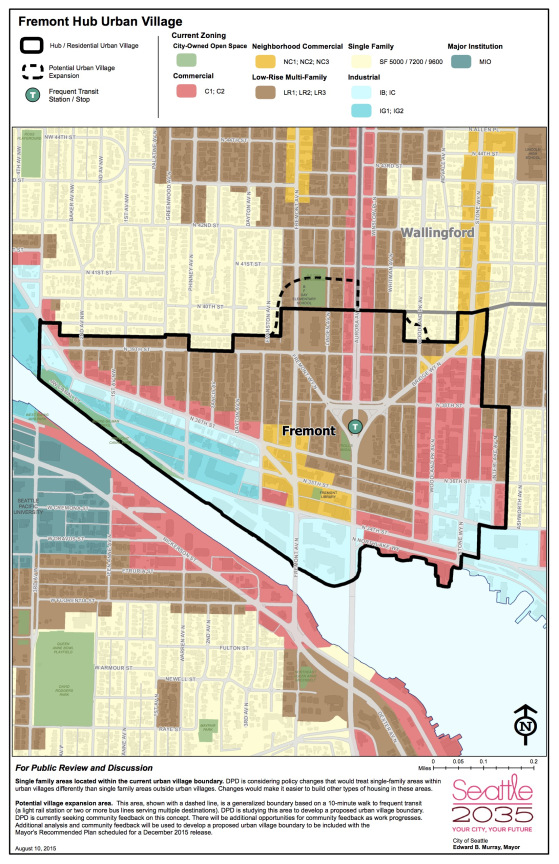
As Fremont and Wallingford are currently zoned, growth has been concentrated along the Stone Way corridor. I’ve argued this could lead to Stone Way rivaling the traditional hubs along 36th Street in Fremont and 45th Street in Wallingford. Stone Way’s mixed-use growth could also lead Frelingford to feeling increasingly like a distinct neighborhood. It’s already cut-off from the rest of Fremont by SR-99, and Wallingford’s business district is a long walk up the hill for those of us at the bottom. As more cafes, restaurants, shops, bars, and businesses go in along Stone Way, we in Frelingford will have more excuses to stay in the immediate neighborhood.
The development of a strong mixed-use district along Stone Way is a good thing, but it also highlights the need for zoning to allow more mixed-use development in other areas of Wallingford and Fremont so that the traditional centers of these neighborhoods do not stagnate and so that even more people can enjoy the high quality amenities of living here. We also have to worry about a constricted housing supply in such a high demand market pricing renters out of the neighborhood.
The HALA report has recommended shifting the height limits up in urban villages. Lowrise Residential zones would see one to two story jumps: LR2 zones would increase from 30 feet to 40 feet while LR3 zones would increase from 40 feet to 55 feet. Neighborhod Commercial zones would also see a bump. Locally, NC-65 zones would be rezoned to NC-75, a change in maximum height from 65 feet to 75 feet. These changes still need to be enacted by the City Council, but doing so would allow new buildings with an additional floor or two which might change the calculus in favor or redeveloping more plots — just another reason to make sure the HALA recommendations are adopted!
Doug Trumm is publisher of The Urbanist. An Urbanist writer since 2015, he dreams of pedestrian streets, bus lanes, and a mass-timber building spree to end our housing crisis. He graduated from the Evans School of Public Policy and Governance at the University of Washington in 2019. He lives in Seattle's Fremont neighborhood and loves to explore the city by foot and by bike.

